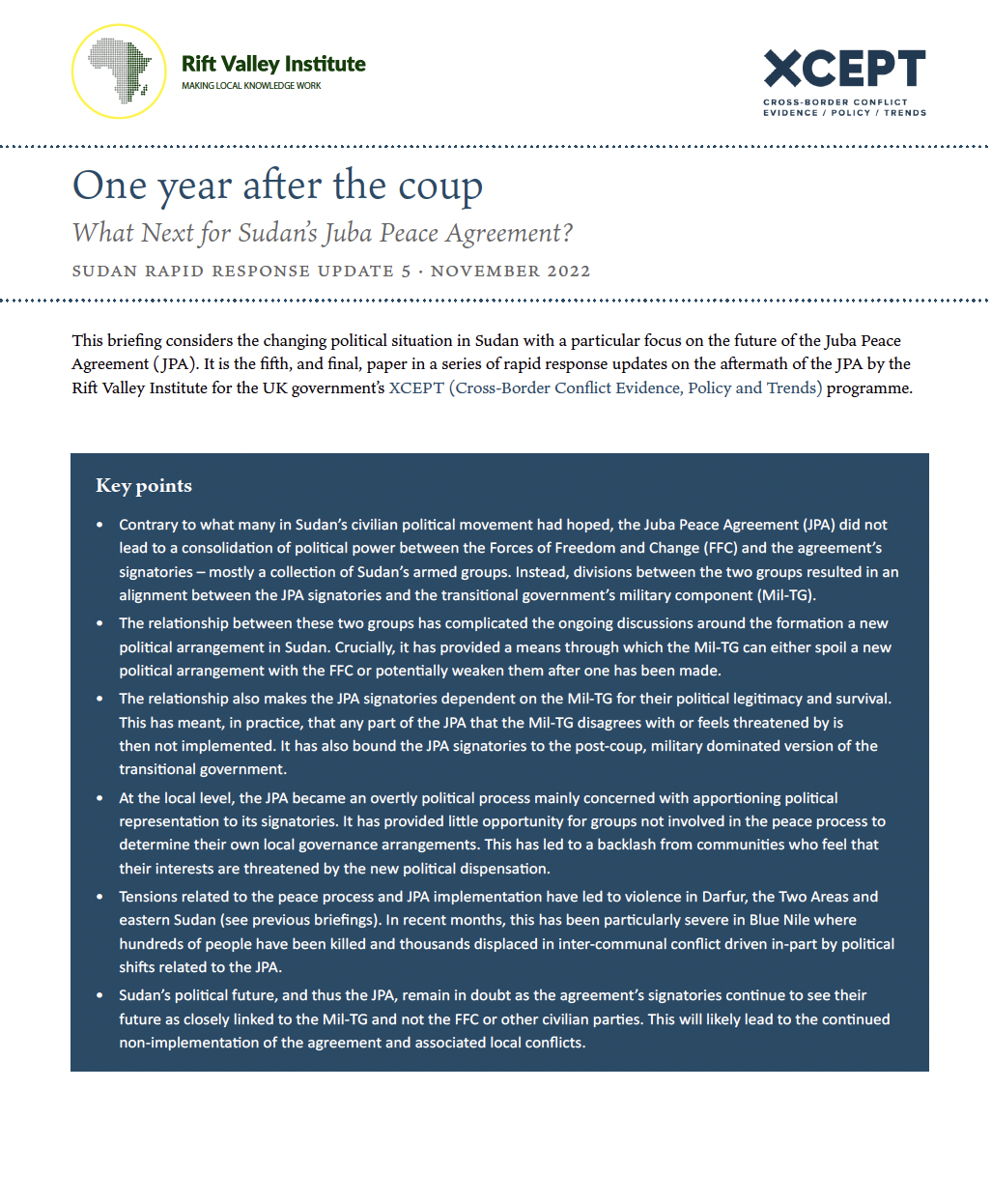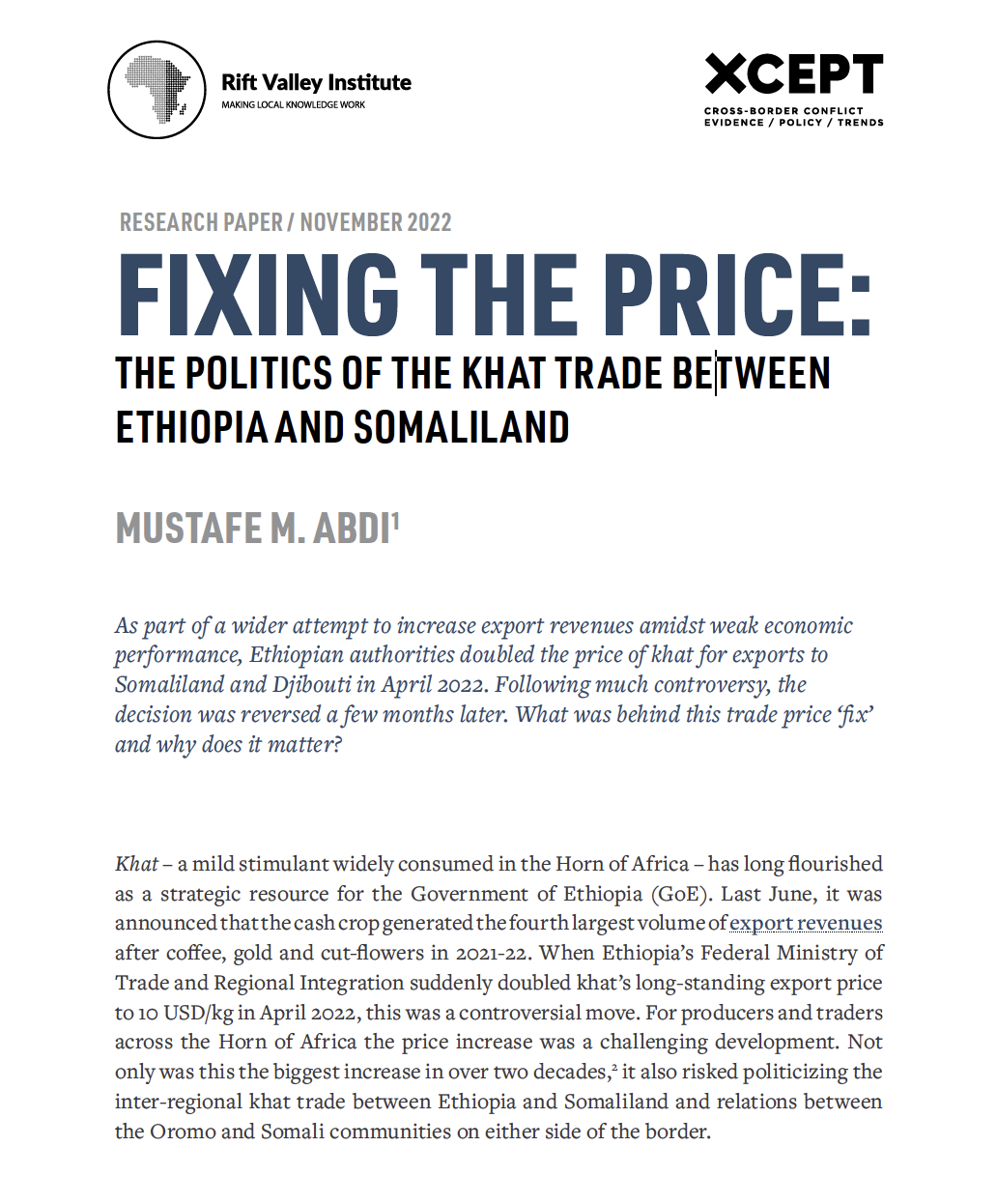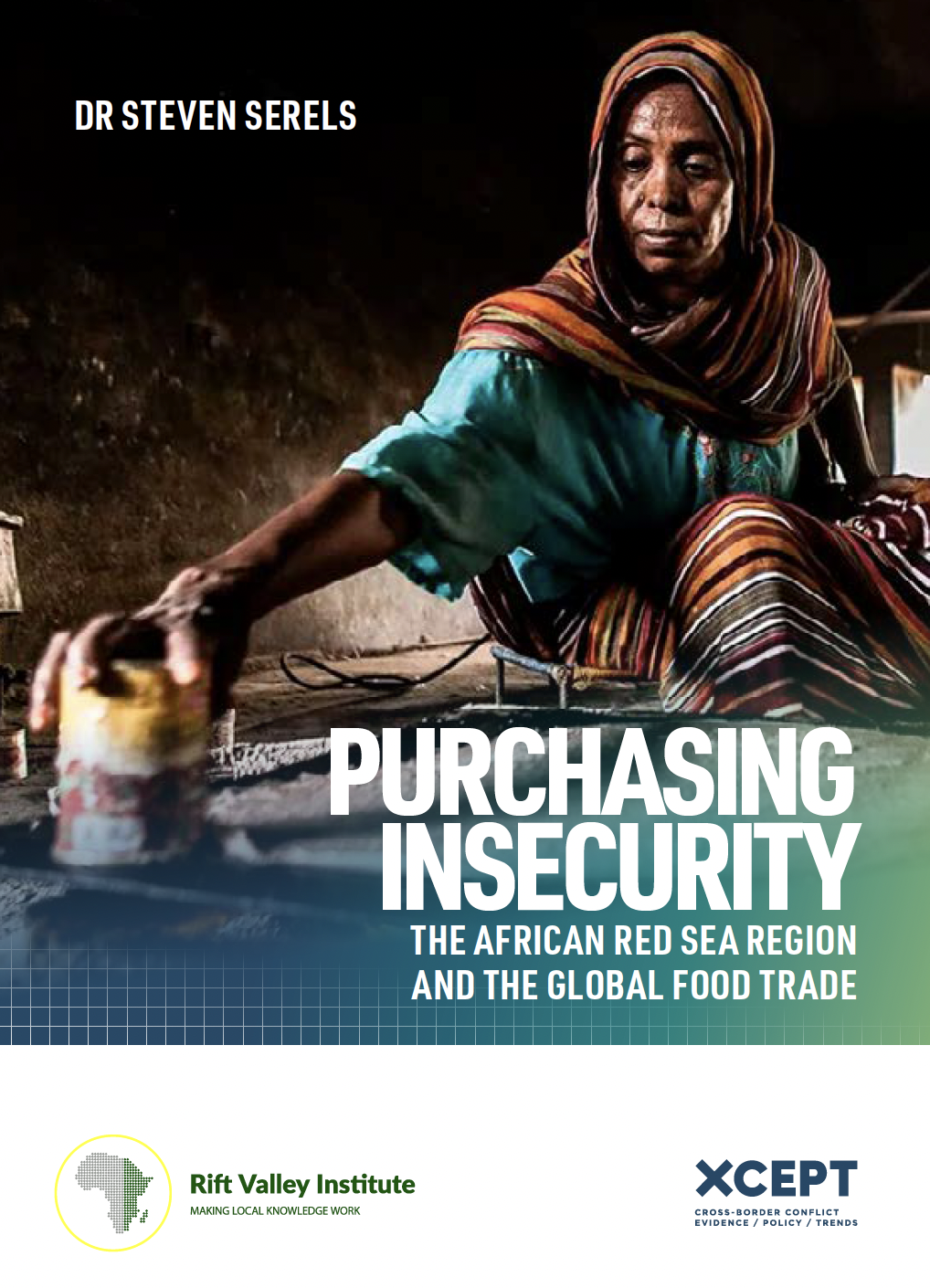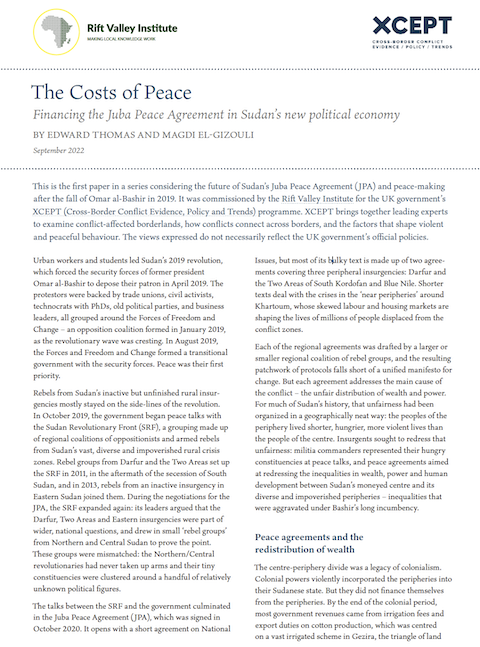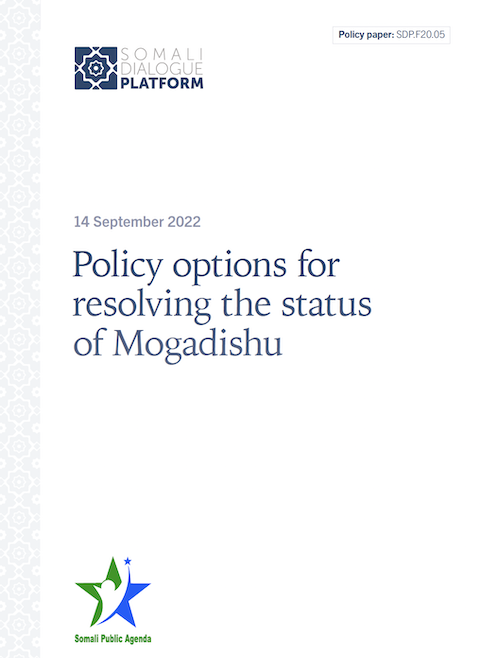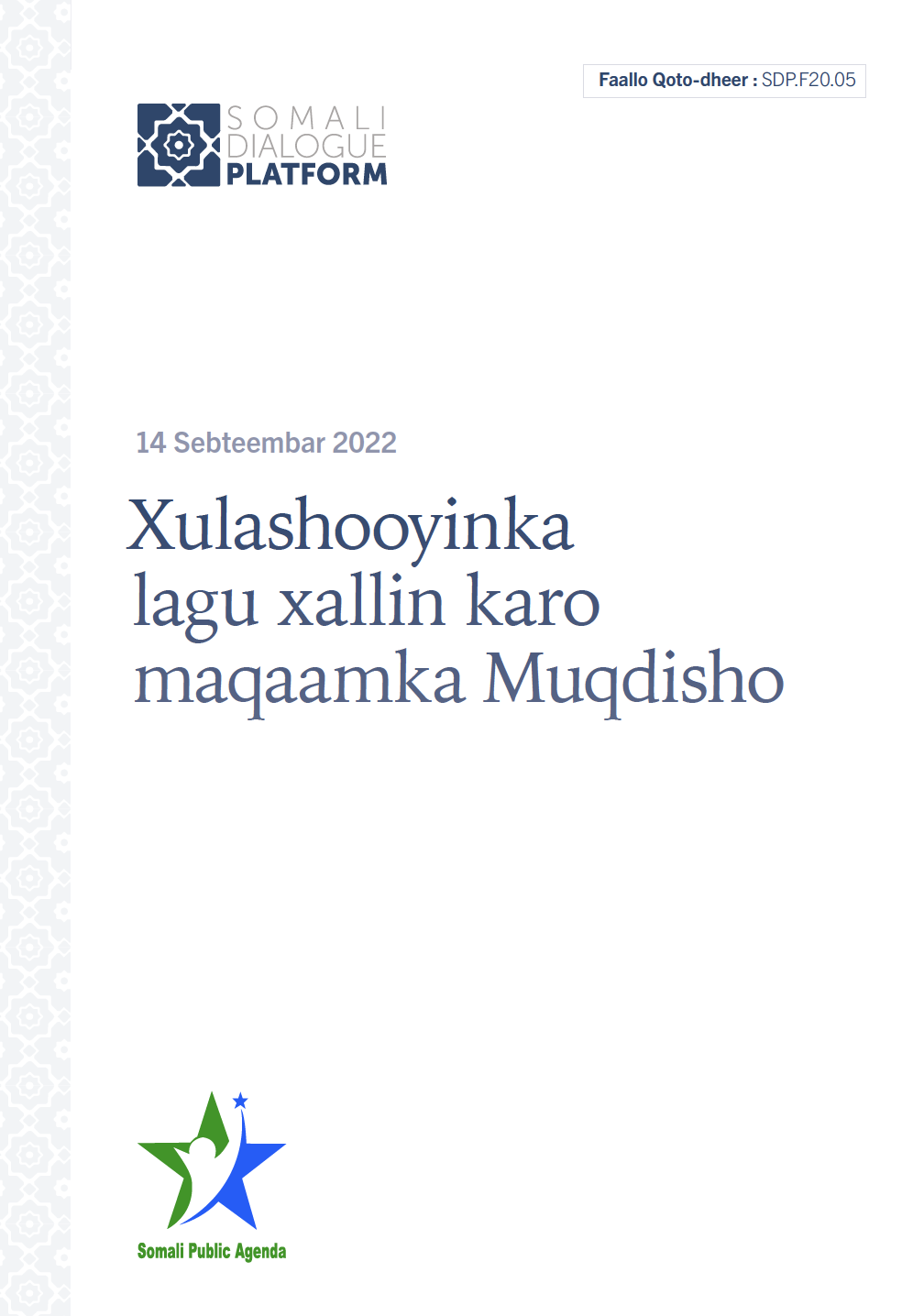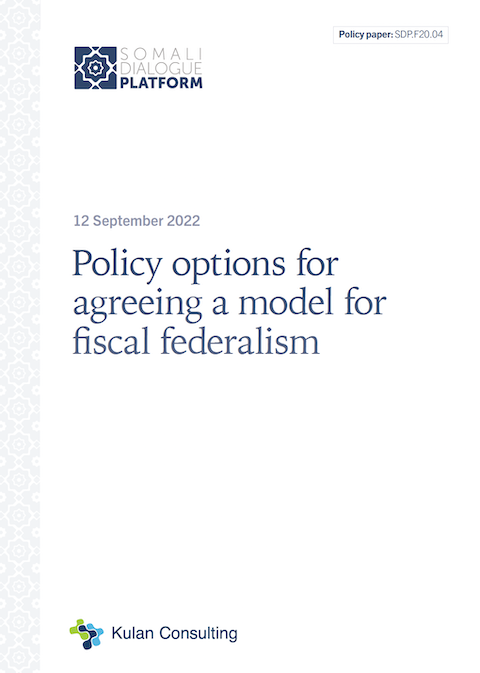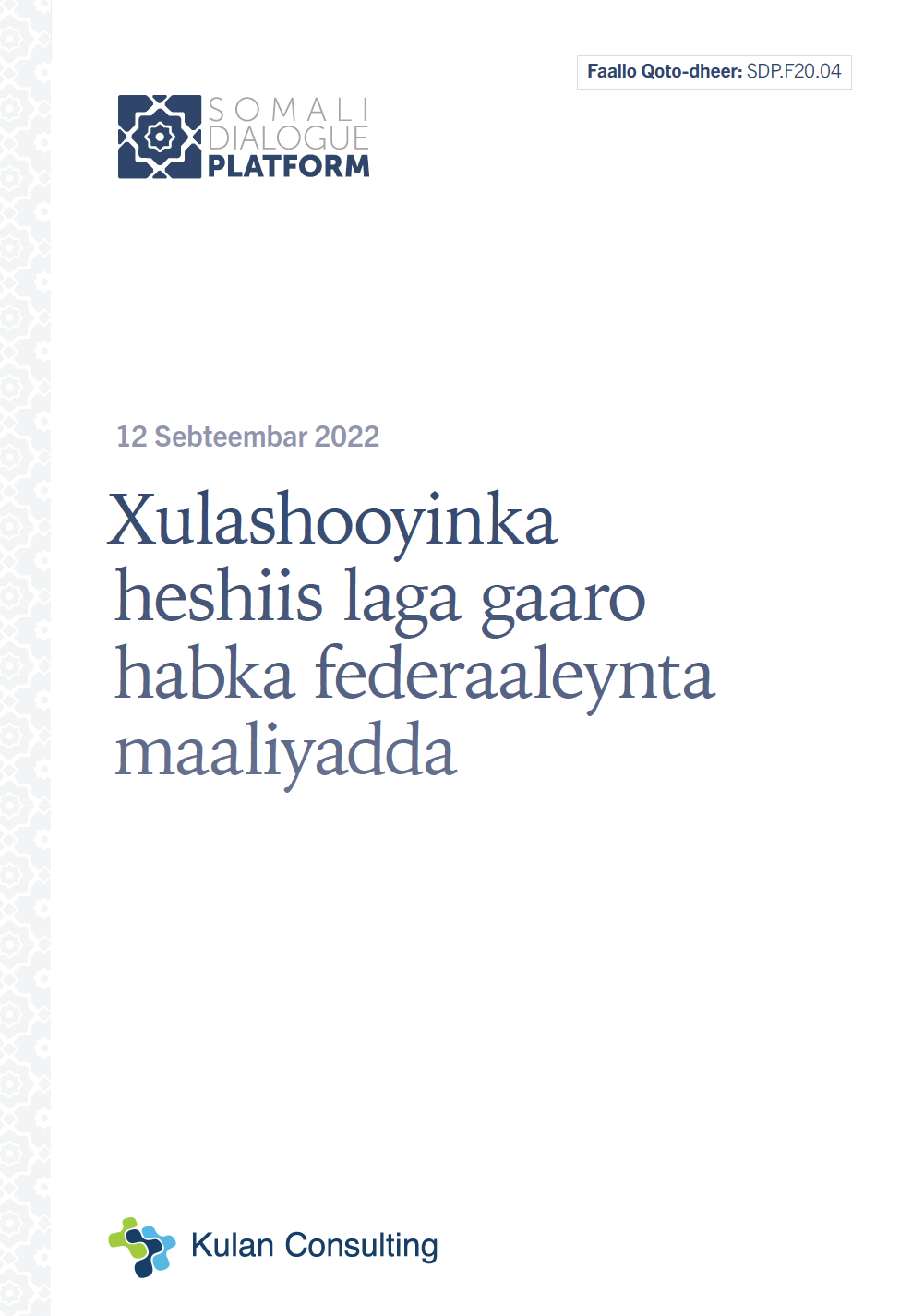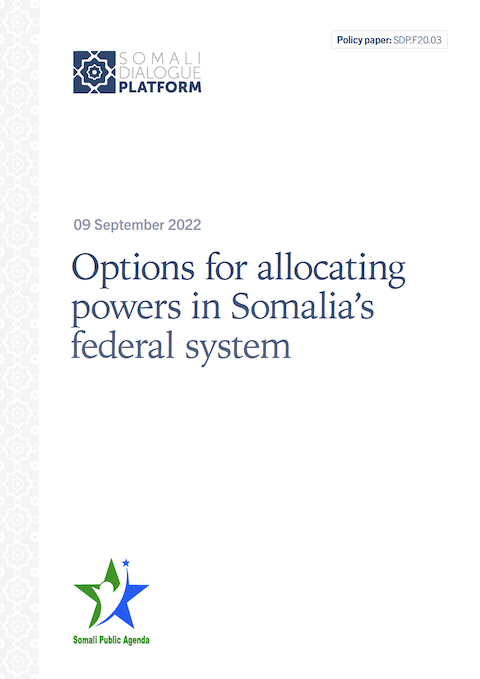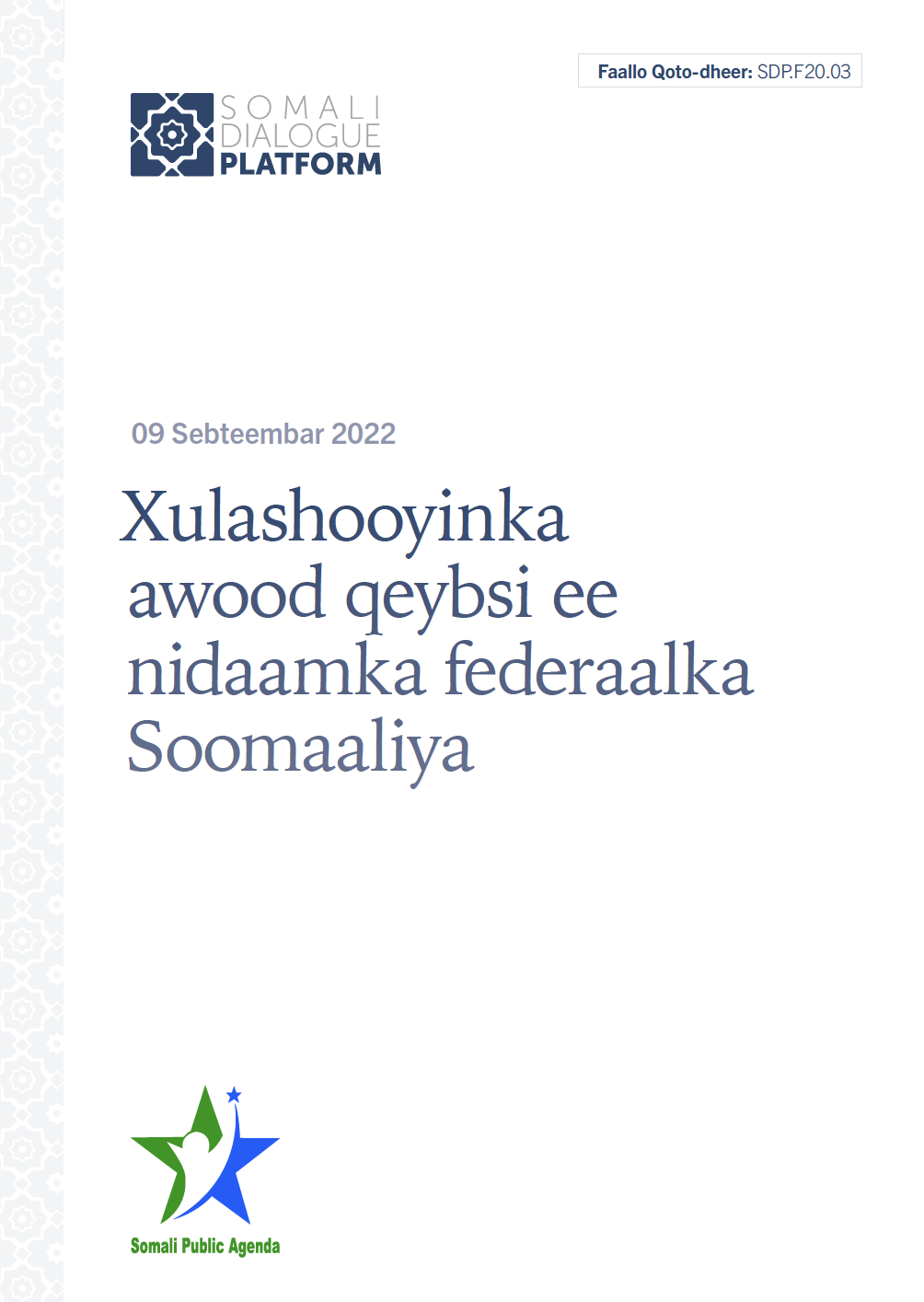This briefing considers the changing political situation in Sudan with a particular focus on the future of the Juba Peace Agreement ( JPA). It explores how the relationship between two key factions in the conflict has complicated the ongoing discussions…
RVI publishes books, research reports, research papers, briefings and meeting reports in a range of formats. Publications cover policy, research, arts, culture and local knowledge in the countries of eastern and central Africa. Research publications—books, reports and papers—are peer-reviewed. Some RVI publications are also available in French and/or Arabic.
The RVI is a signatory of the Budapest Open Access Initiative (2001); all publications are free for download in PDF format under Creative Commons licences. The views expressed in books and reports published by the RVI are those of the authors, not the Institute.
SEARCH
PUBLICATION TYPE
LANGUAGE
REGION
COUNTRY
As part of a wider attempt to increase export revenues amidst weak economic performance, Ethiopian authorities doubled the price of khat for exports to Somaliland and Djibouti in April 2022. Following much controversy, the decision was reversed a few…
The African Red Sea Region does not produce enough food to feed its own population. Sudan, Eritrea, Ethiopia, Djibouti and Somaliland (Somalia) are each reliant on imports to make up for domestic production shortfalls. This presents unresolved challenges to…
This is the first paper in a series considering the future of Sudan’s Juba Peace Agreement (JPA) and peace-making after the fall of Omar al-Bashir in 2019. It was commissioned by the Rift Valley Institute for the UK government’s…
The unresolved status of Mogadishu is one of the key outstanding issues in Somalia’s political settlement. Since 2012, Somalia has made progress in clarifying its federal model through the establishment of Federal Member States (FMS) and efforts – albeit…
Maqaamka Muqdisho oo aan weli la xalin ayaa kamid ah arrimaha ugu muhiimsan heshiiska siyaasadda Soomaaliya. Lagasoo bilaabo sanadkii 2012, Soomaaliya waxay horumar ka samaysay in la caddeeyo nooca federaalka iyadoo la dhisay Dowlad-goboleedyo sidoo kalena la sameeyay dadaallo…
Somalia first formally adopted a federal model in 2004 with the establishment of the Transitional Federal Charter. Since then, it has been deepened and clarified with the adoption of the Provisional Federal Constitution in 2012 and the subsequent formation…
Soomaaliya ayaa markii ugu horreysay si rasmi ah u qaadatay hannaanka federaalka sannadkii 2004-tii markii la sameeyay Axdiga Federaalka Kumeelgaarka. Tan iyo markaas, dhidibada ayaa loo aasay iyadoo la qeexay markii la meel mariyay Dastuurka Federaalka Kumeelgaarka ah ee…
Somalia formally adopted a federal system in 2004 with the establishment of the Transitional Federal Government. This model became more established in 2012 with the ratification of the Provisional Federal Constitution (PFC), which clarified many critical areas of Somalia’s…
Soomaaliya waxa ay qaadatay nidaamka federaalka sanadii 2004 markaasoo la dhisay dowlad kumeelgaar ah. Nidaamkan ayaa noqday mid asaaskiisa la adkeeyay sannadkii 2012 kadib markii la ansixiyay Dastuurka Federaalka Kumeelgaarka, kaasoo caddeeyay meelo badan oo xasaasi ah oo ku…
Recent Publications

2025 Year in Review
February 16, 2026
The 2025 Year in Review provides an overview of the Rift Valley Institute’s work over the past year across eastern and central Africa. The report highlights RVI’s research and publication outputs, education and training activities, and public forums and convenings,

Rethinking Aid in Sudan and South Sudan
January 28, 2026
The brief draws on a joint convening held in Kampala, Uganda, in November 2025, which brought together more than 45 Sudanese and South Sudanese participants representing more than 30 grassroots organizations and international NGOs. Its primary objective is to amplify

EWNET Writes: Writing Workshop Session I
December 18, 2025
The Ethiopian Women Researchers Network (EWNET) inaugural writing workshop series aims to not only provide women researchers with uninterrupted time for their scholarly projects, but also build a supportive academic community. The first session, entitled ‘EWNET Writes: Writing Workshop Session

